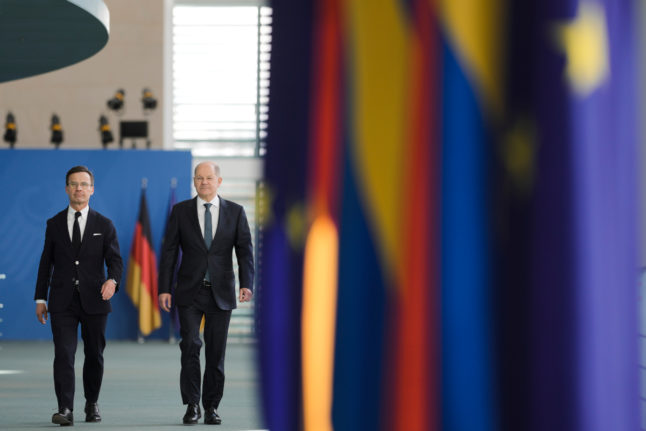Turkey will not formally approve Finland and Sweden’s membership of NATO until the two countries take the necessary “steps”, Turkish President Recep Tayyip Erdogan told alliance chief Jens Stoltenberg Friday.
Ankara has accused the two Nordic nations of providing a safe haven for outlawed Kurdish militants it deems “terrorists” and held back on ratifying their NATO membership despite an agreement in June.
“President Erdogan noted that the steps to be taken by Sweden and Finland would determine how fast the approval process… would go and when it would be concluded,” the Turkish presidency said.
READ ALSO: ‘It’s time to welcome Finland and Sweden as members of Nato’
Erdogan and Stoltenberg held a private meeting in Istanbul that was closed to the media.
Finland and Sweden dropped decades of military non-alignment and scrambled to become NATO members in May, after Russia invaded Ukraine. But Erdogan threatened to block their bids and sought concessions, leading to a deal in June between Turkey, Finland and Sweden that included provisions on extraditions and sharing information.
New Swedish Prime Minister Ulf Kristersson will visit Ankara on Tuesday to meet with Erdogan in a trip that Stockholm hopes will lead to Turkey’s approval.
Stoltenberg “welcomed the major, concrete steps already taken by both countries to put the memorandum into practice, and stressed that their accession will make NATO stronger”, the alliance said in a statement on Friday.
On Thursday, the NATO secretary general said Finland and Sweden’s accession was important “to send a clear message to Russia” during a press conference with the Turkish foreign minister.
All 30 NATO member states except Turkey and Hungary have ratified the accession of Sweden and Finland.
New members to the alliance require unanimous approval.



 Please whitelist us to continue reading.
Please whitelist us to continue reading.
The 2-decades long ruler of Turkey is clearly running a proxy-negotiation with the U.S., via Finland and Sweden, two countries that are the last you would accuse of condomning terrorism. Them acknowledging his “terms” just humiliates them. Most probably the ruler wants to be given F-16 and other arms to say YES, for he would like to use these arms and aircraft to do to Greece what Russia is doing to Ukraine.
One of the coolest things about Sweden, and something I admired Sweden for, was that it opted to remain outside of Nato, and that it had a unique and independent military force and unique equipment and world perspective.
Sweden should maintain its independence, and in looks weak for running to Nato and the protection of the USA at the first sign of danger in its neighbourhood. And there is no need to join Nato. Of course, the US would defend Sweden if it were attached by Russia or any other aggressor – if even Sweden remained outside of Nato. And now – in joining Nato – Sweden may well be dragged into a foreign conflict if another Nato member is attacked or engaged.
I hope Turkey blocks Sweden’s Nato application, for Sweden’s own good. And that Sweden maintains its independence. For if Sweden joins Nato, you can be sure that its unique and interesting military forces will diminish is scope and capability at a rapid pace, as Swedish politicians conclude that Sweden is protected by the USA – its big brother. Just look at Germany, if you doubt this will happen.